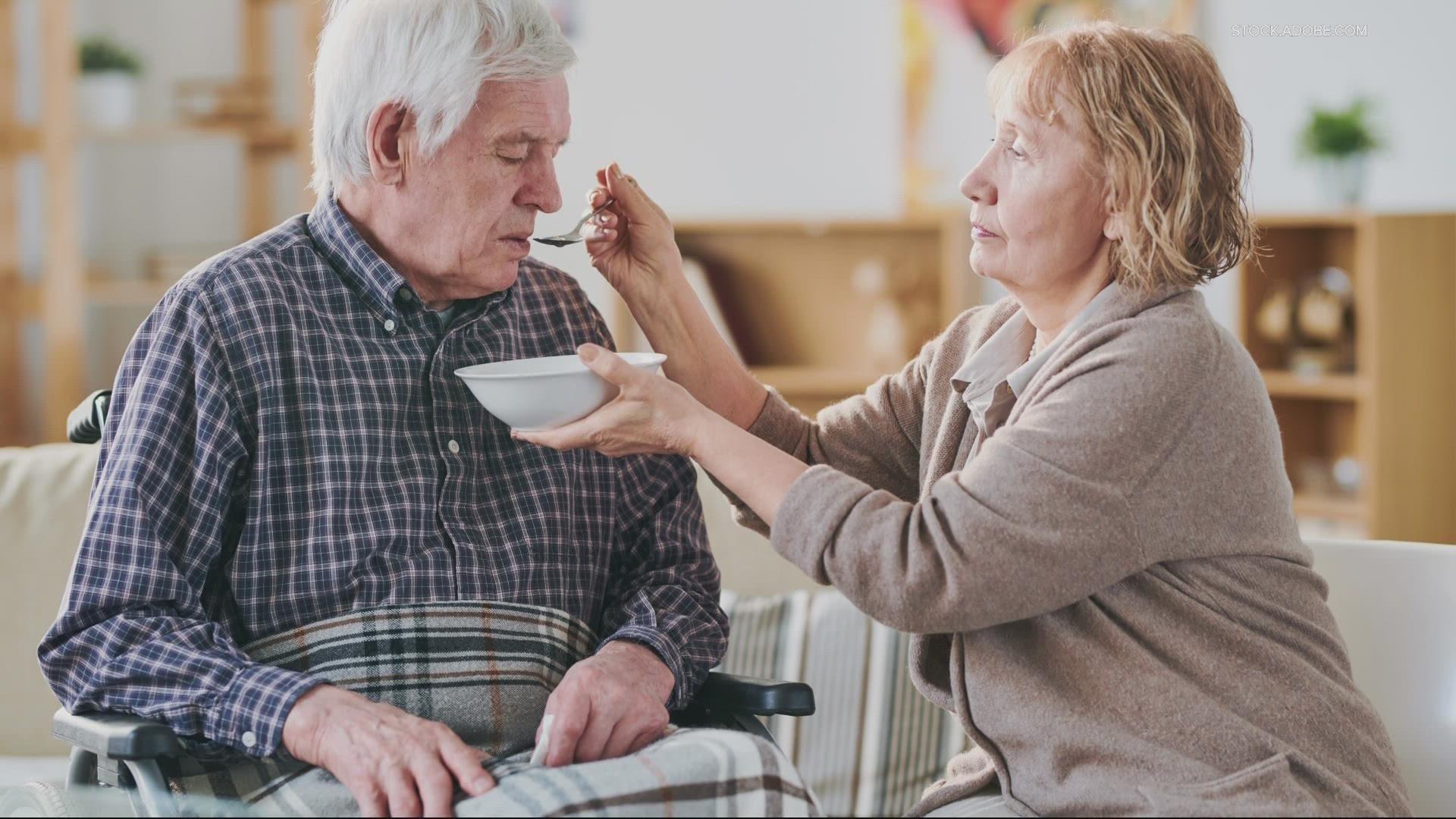PORTLAND, Ore. — November is Family Caregiver Month, a time to recognize family caregivers and raise awareness of caregiving issues.
One in five adults, or 53 million Americans, are unpaid family caregivers, according to research from AARP and the National Alliance for Caregiving (NAC)
“It's a really large group and at some point in our life, we will all either be a caregiver or be someone that's been taken care of, and so it's really important that we watch the process and make sure we're advocating for change before it's needed for us as well,” said advocate and consultant Maura Horton.
From 2015 to 2020, the U.S. saw an increase of 9.5 million adults who provide assistance on everything from grocery shopping and medication management to round-the-clock care, according to AARP and NAC.
“Caregivers are often forgotten, not noticed, overstressed … often they don't have many lifelines and so they're so busy in the moment that they can't really advocate for themselves,” Horton said.
Maura Horton knows the ups and downs of being a family caregiver. She was the primary caregiver to her husband, who was diagnosed with Parkinson’s disease at an early age.
“He, by trade, was a career college football coach,” she said. “And they're not generally used to losing some of their independence, especially with their physicality.”
Years ago, while on the road coaching, her husband Don found himself in a locker room unable to get dressed. Limited mobility is one of the effects associated with Parkinson’s. A player noticed him struggling and buttoned his shirt for him.
“My husband came home and told me he had a hard day and told me a little bit about that story. I knew this was the preface of him losing some things that we all take for granted, so I didn't feel like he should have to go through those motions or emotions of struggling and then also how it felt of losing his independence,” Horton said.
So, she designed magnetized clothing to help people with limited mobility and dexterity. By magnetically infusing the buttons on her husband’s shirts, she created a product that could restore freedom to his daily routine. That turned into the adaptive clothing company Magna Ready.
Horton's mission to help others has turned into advocacy for caregivers and those they’re caring for.
“After my husband passed away, I thought it was very important for me to start advocating for those who cannot at that current time voice what their needs are or try to find resources,” Horton said.
21% of family caregivers report their own health is fair to poor. 45% have at least one financial impact, according to the AARP/NAC 2020 report.
- Seek support from other caregivers – you’re not alone.
- Take care of your own health so that you can be strong enough to take care of your loved one.
- Accept offers of help and suggest specific things people can do to help you.
- Learn how to communicate effectively with doctors
- Be open to new technologies that can help you care for your loved one
- Watch out for signs of depression and don’t delay getting professional help when you need it
- Caregiving is hard work. So, take respite breaks often
- Organize medical information so it’s up-to-date and easy to find
- Make sure legal documents are in order
- Give yourself credit for doing the best you can in one of the toughest jobs there is
Horton encourages caregivers to look at smart home technology as a helpful tool, from turning on the lights to setting medication reminders.
If you are not a family caregiver, she encourages you to reach out and support.
“It does take a village when you are caregiving. Sometimes we just need kindness,” Horton said.
There are many local resources to find help and even medical equipment:

